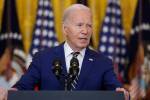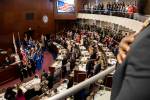GOP offers best hope for education reforms
With Republicans set to assume control of both chambers of the Nevada Legislature — along with all the state’s constitutional offices — parents across Nevada can only wait with bated breath to see if Republicans will move to implement the fundamental reforms Nevada’s K-12 education system needs.
There is little disagreement among academics about which reforms are needed. Scholars from left to right — from the Center for American Progress, the Brookings Institution, the Cato Institute and many of the nation’s leading universities — all broadly agree on the need for fundamental reforms aimed at improving teacher quality, introducing market forces and leveraging technology to help students learn.
This remarkable level of consensus is detailed in a recent NPRI report — which also builds on these scholars’ observations to develop a policy agenda that would markedly improve the education of Nevada’s children.
Given such broad intellectual agreement, it’s natural to question why Republicans might have any greater disposition toward education reform than Democrats.
It should not go overlooked that there is a sizable contingent of pro-reform Democrats who view education through scholars’ eyes. For example, state Sen. Aaron Ford — who holds a doctorate in education policy — sponsored reform legislation in 2013 that would have replicated California’s popular “parent trigger” law in Nevada. Similarly, former state senator and soon-to-be former congressman Steven Horsford — whose wife is a professor of education policy — often showed sympathy for various principles of education reform while in the state legislature.
Even President Barack Obama has endorsed some of the key tenets of the reform movement.
So the problem for elected Democrats, by and large, has not been a failure to intellectually understand or sympathize with the need for reform. Instead, the problem for these officials has been that a core Democrat constituency is fundamentally opposed to the reform movement.
Defending the institutional status quo is the government education establishment itself — teacher unions, school district officials and others who have long sought to derail the reform movement. The alternative vision promoted by these groups is simply to increase the public funding streams flowing to themselves.
Despite the increasing failures of traditional approaches to public schooling to prepare students for success in the 21st century, this establishment insists that those traditional approaches must simply be expanded and be given ever-greater resources.
It has been difficult for many Democrats to turn their backs on these interest groups and expect to remain in office. Nationwide, teachers unions have been the largest donors to political campaigns and can devote vast manpower for get-out-the-vote activities. Almost all of these resources flow to Democrats and, no doubt, many Democrats would never have gotten elected without teachers union support.
The result has been the emergence of a growing crisis of the political left, wherein the academics and intellectuals understand the need for education reform — particularly because the primary beneficiaries are children from low-income and minority households — but the pragmatists and political consultants realize how dependent they are on teachers unions for campaign support.
“These opponents of education reform” — to use Sonya Horsford’s words — expect the candidates they support to block any reform efforts and instead to channel more money into the existing educational bureaucracy, which they control.
That’s why the boldest efforts at reforming education have primarily occurred in states with Republican majorities. Not receiving significant electoral support from teachers unions, GOP lawmakers and governors have shown much more independence.
Under Jeb Bush’s leadership in Florida, for instance, a series of reforms made Florida’s education system one of the most improved nationwide in the past 15 years. Similarly, it has been Republicans leading the way to school choice and other fundamental reforms in Alabama, Arizona, Georgia, Iowa, Indiana, Louisiana, North Carolina, Ohio, Oklahoma, Pennsylvania, South Carolina and Wisconsin.
This is not to say that school-choice programs have never been installed under Democrat leadership — Minnesota is one such example — but the clear trend has been that Republicans have been the party of education reform.
That could mean good news for Nevada parents — particularly those zoned into failing public schools and who lack the financial resources to afford private alternatives on their own.
If Nevada Republicans can avoid getting distracted by their own special-interest constituencies and take up the mantle of school choice and other education reforms in 2015, these election results will mean a significantly brighter future for Nevada’s children.
Geoffrey Lawrence is director of research at the Nevada Policy Research Institute, a nonpartisan, free-market think tank. For more, visit npri.org.























